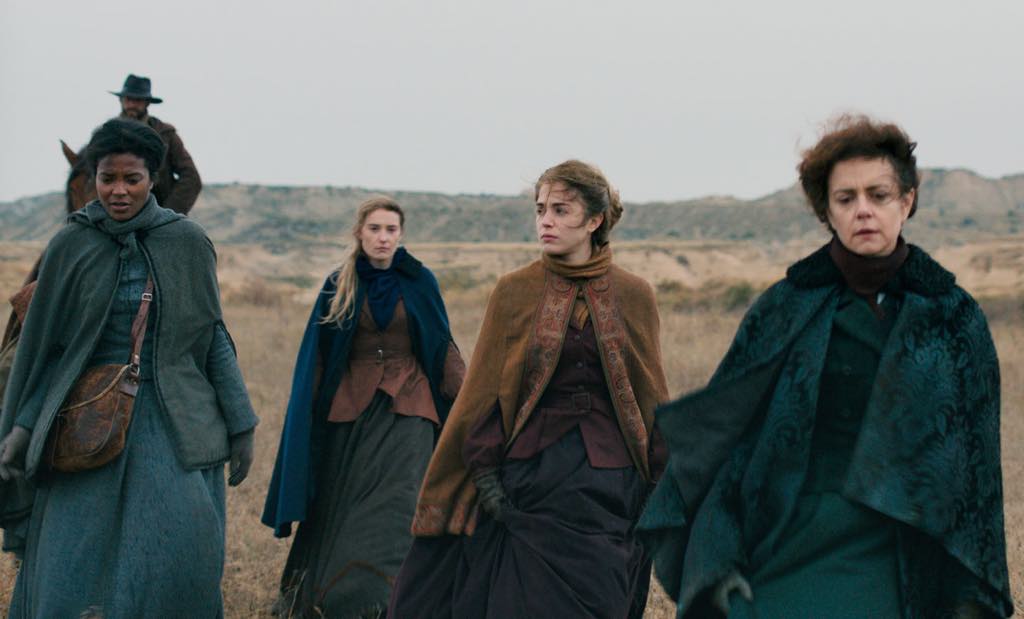
A feminist French Western? Well, why not? Just about every other imaginable kind of Western has already been made, so not much else is left.
L’État Sauvage (Savage State), directed by David Perrault, takes place in 1861 during the American Civil War. A French family that has been living in Missouri for a couple of decades and has profited handsomely from its perfume import business has wholeheartedly adopted the genteel southern lifestyle, complete with a stately mansion and formal balls. When the arrival of the first Northern soldiers threatens their cozy life, however, they panic and decide to head west to catch the first boat back to France (this provides a good excuse to have the characters cross the wide-open spaces of America, where, in this film at least, there seem to be no towns or cities at all).
The focus of the film is on the youngest of the family’s three daughters, the beautiful and languid Esther (Alice Isaaz), who has been mooching around the mansion reading novels, yearning for some romance and adventure. Her wish is soon fulfilled.
Edmond (Bruno Todeschini), the father, hires Victor (Kevin Janssens), a strong, handsome stud with a checkered past, to guide the family, accompanied by their black maid, Layla (Armelle Abibou), on their cross-continental trek.
The women, used to being pampered, must soon adjust to hardship as their civilized way of life disintegrates on the road and their belongings and companions disappear. The women end up on their own, miraculously transformed into gun-totin’, straight-shootin’ gals.

Even the bad guy in L’État Sauvage is a girl, a nasty piece of work named Bettie (Kate Moran) who is jealous of her former lover Victor’s proximity to Esther (did you say “love interest”?) and who rides with a gang of inexplicably masked men, their faces completely covered with cloth under their hats, stalking and terrorizing the French fugitives.
The idea of the film, which upturns the mythical journey from savagery to civilization and reverses the machismo of the Wild West by handing the power to the women, might have had potential, but Perrault, who takes himself very seriously, drags it out far too long and brings in too many anomalous and absurd elements, like Bettie’s dirty dance with the masked men around the fire, which actually had my friend and me laughing out loud, and not because it was intentionally funny. Apparently, the director liked the idea of throwing in a few “phantasmagorical” elements, but in the midst of this otherwise realistic film, they seemed ridiculous. And, just to keep on top of today’s trends, there is also a scene in which one sister confesses to another that she is in love with a woman.
I am sure that Perrault had the best of intentions, but unfortunately, women have yet to conquer the West on film.
Favorite